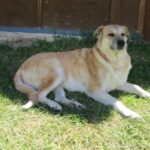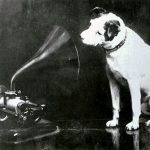What Is Naturopathy?
Naturopathy is a philosophy.
It is a lifestyle that looks at the whole person—or, the whole animal. It doesn’t view symptoms as something that is separate from the animal. Nor, does it view symptoms as something that needs to be eliminated or suppressed. Instead, a naturopath uses the symptoms as a road map for the root cause of the illness.
The role of the naturopath is to teach the animal’s care giver how to embrace the naturopathic philosophy and become empowered with knowledge so they now can become an active participate in their animal’s health.
Animal Naturopathy is about the pet owner taking a “proactive” approach to the health of their pet. To achieve good health it should be a daily commitment, a way of life, it’s not something you practice only when the pet becomes ill. That is not health, nor is it health care. That is disease care.
Animal naturopaths are focused on promoting health. They teach and practice the Eight Laws of Health mandated in nature, which are: nutrition, fresh air, sunshine, pure water, exercise, proper rest, temperance, and trust in divine power. In addition, animal naturopaths may include other natural modalities in their practice: supplements, essential oils, herbs, homeopathy, acupressure, massage, etc, to help assists the body’s innate healing power. For example, I have studied homeopathy, certain aspects of Chinese Traditional Medicine (moxibustion & cupping), and Western and Chinese herbal medicine.
However, because the government does not approve of natural/holistic medicine, Animal Naturopaths are not licensed. Therefore, they are not allowed to diagnose, treat disease (in the traditional sense), prescribe drugs, or perform surgery. Their role is to guide, teach, and empower pet owners on how to care for and make their own decisions for their pets.
Holistic medicine addresses itself to the physical, mental and spiritual aspects of those who come for care. It views health as a positive state not just an absence of disease. The therapeutic approaches employed are aimed at mobilizing the person innate capacity for self healing. ~ David Hoffman, herbalist
What is the difference between allopathic medicine and naturopathic health care? Allopathy is a word first coined in 1810 by Samuel Hahnemann, the father of homeopathy, to describe conventional, or mainstream medicine. The term allopathy is defined as “other than the disease.” Hahnemann intended to point out how physicians with conventional training employed therapeutic approaches which, in his view, merely treated symptoms and failed to address the disharmony produced by the underlying disease. Homeopaths saw such symptomatic treatments as “opposites treating opposites” and believed these conventional methods were harmful to patients.
In conventional medicine, the patient is reduced to a system/organ/tissue existing and functioning in a vacuum. This is why we have a medical system of “specialists.” However, in holistic medicine the patient is viewed as an integrated interdependent whole, influencing and being influenced by environment and being animated by a life force.
In modern conventional medicine, nothing much has changed since Hahnemann’s days. Today’s doctors still look at symptoms to identify the diagnosis and then use the chemical influence of their medicine to treat the diagnosis. But because it never addresses the cause of the symptoms it pushes the illness deeper into the body. Often times, the drugs cause other symptoms to arise and now more drugs are taken to suppress the new symptoms until you have a person, or an animal, on numerous drugs.
Animal naturopaths are not holistic veterinarians. A holistic vet is basically a conventional vet who has studied at a conventional vet college and then later specializes in a natural health modality. Lately, there is a trend of conventional veterinarians who’ll take a course in, let’s say, acupuncture or herbalism, and who still have an “allopathic” or “reductionist” mind-set, but yet, will call himself a “holistic doctor.” Personally, I don’t feel you can combine allopathic and natural treatments together. You’re either natural, or you’re not. Chemical drugs, whether vaccines or medicine, cancels out natural care. But, that is not to say there aren’t any truly natural holistic veterinarians out there, but you’ll probably have to look long and hard to find one.
“Dr. Raditic and I are both frustrated that there is no independent research being conducted in the area of veterinary nutrition. There’s a lack of funding for this type of research, and sadly, there’s also a lack of interest.” ~ Dr. Karen Becker, DVM
This may come as a surprise to most, but your typical conventional veterinarian was not taught nutrition in vet school. If you don’t think it’s true, let me tell you a story: I know a veterinarian student who has plans to become a holistic vet and he wanted to take either a holistic nutrition or a holistic all-natural science class, but his vet college didn’t offer any in-depth nutritional courses. The only course the college presented was a non-mandatory 5-day class where a representative from the pet food industry would come in, place a variety of bagged & canned pet food on a table, and teach the students how to read the labels. That’s not a comprehensive nutritional course, and my friend knew it. So, he decided to transfer to another college in the hope they would have better nutritional courses. Unfortunately, he couldn’t find any such school. And, why not? There are approximately 28 veterinarian colleges in the USA, and they all follow the same basic curriculum and course work, which is required if they want to be accredited by the AVMA.
You have to realize veterinary colleges are financed by the multi-billion dollar pet food and pharmaceutical corporations. Just walk down the hallway of any vet college and you will see posters on the walls advertising commercial pet food and drugs/vaccines. If they were to teach a true animal nutritional class where students learned to understand the wild counter-parts of our domesticated animals, a student might put the dots together and realize processed canned/bagged pet food is not healthy for our pets…and, the pet food industry does not want to loose any money.
Allopathic veterinarians are not taught preventive health care. The schools basically skip over the foundation of health and go straight to teaching surgery and drugs. Veterinarians receive minimal training in vaccines and immunology. Read what some leading veterinarians have to say regarding what they were taught in vet college about vaccines*:
Dr Stephen Blake: “I emphatically do not believe that I was taught adequately with regard to the vaccine issue. I was taught to believe vaccinations were synonymous with immunization. They are two separate entities.
“I was taught vaccines were safe and it was implied there had been safety studies done on them before they were used on the general public. They are not safe and there have not been any safety studies done on any of them.
Dr Jeff Feinman: “My training in vet school was not complete with regard to the harmful effects that vaccines have on the immune system. The scientific evidence was not properly explored by the eighties. Vaccines were designed to help stimulate immunity. Current research is proving just the opposite however. Even my graduate school immunology course (attended mainly by MD students) was incomplete.”
Dr Michael Dym: “Our training in veterinary school was not adequate with regards to immune system reactions in our animals. We were taught a one size fits all vaccination program. There was nothing taught about the chronic immune reactions that can occur weeks, months or years later after vaccination in certain susceptible animals. From personal conversation with Ron Schultz, renowned veterinary immunologist, I learned that these important concepts are not taught in modern veterinary schools.”
Dr Ihor Basko: “We weren’t taught adequately on immunology; immunology is very difficult to understand. Vaccine companies influence how this is taught.”
Dorothea Hofman BVSc (Hons) IVAS: “I don’t believe my training in vaccination was adequate at college. Other options and the side effects of vaccination were never mentioned – only the ‘benefits’ of vaccination were ever discussed.”
Now, I don’t want to put-down allopathic vets entirely, because in the case of an emergency this is where they’re at their best. If your dog is hit by a car, then you’ll want a surgeon. But, when it comes to preventative and chronic health care you’d be better off finding an alternative health practitioner.
As an Animal Naturopath I am trained in the physiology, anatomy, how nature works to prevent and heal, and also, an in depth study of the nutritional needs of our carnivore pets: cats and dogs.
Animal Naturopathy is based on the following Six Principles:
The Healing Power of Nature (vix medicatrix naturae)
The body has an innate ability to heal itself. The healing process is intelligent and ordered. Animal naturopathy supports and assists the healing process by identifying and removing obstacles to a cure, and by using nature and nature’s remedies that work with, not against, the body’s natural processes.
Identify and Address the Cause (tolle causum)
Every illness has a cause. Causes may occur on the physical, mental or emotional level. Symptoms are expressions of the body’s attempt to heal, but are not the cause of illness. Animal naturopaths are trained
to find and assist the body in removing the underlying cause of an illness rather than just eliminating or suppressing symptoms.
First Do No Harm (primum non nocere)
Animal Naturopaths use nature’s methods that minimize the risk of harmful side effects. Methods designed to suppress symptoms but not remove the underlying cause are usually harmful, their use is always avoided.
Doctor as Teacher (docere)
The original meaning of the word “doctor” is teacher. A principal objective of animal naturopathy is to educate the client and emphasize responsibility for their animal’s health. Animal naturopaths are educators and
teachers.
Target the Whole Animal
When evaluating an animal; all aspects of that animal (physical, mental and emotional) are taken into account.
Prevention is the Best Cure
Illness is due to improper diet, habits, exposure to toxins and general lifestyle. Animal naturopaths assess risk factors and susceptibility to disease and make appropriate recommendations to prevent health challenges, or to prevent existing health challenges from developing into more serious or chronic states. The emphasis is on building health rather than treating disease.
Resource: *Dogs Naturally Magazine, “Vets On Vaccines”
NOTE: DISCLAIMER
The purpose and general goal of the small animal health consultation offered by Anthea Appel is to educate the client about their animals body systems in relation to function and ability pertaining to maintenance of overall homeostasis (balance) through the removal of various, and typically specific, obstacles to their health, thereby encouraging their body’s own natural healing processes. Anthea Appel does not function as a traditional licensed allopathic veterinarian by diagnosing disease, treating disease, or performing invasive procedures, nor do her services replace that of a traditional licensed allopathic veterinarian.











